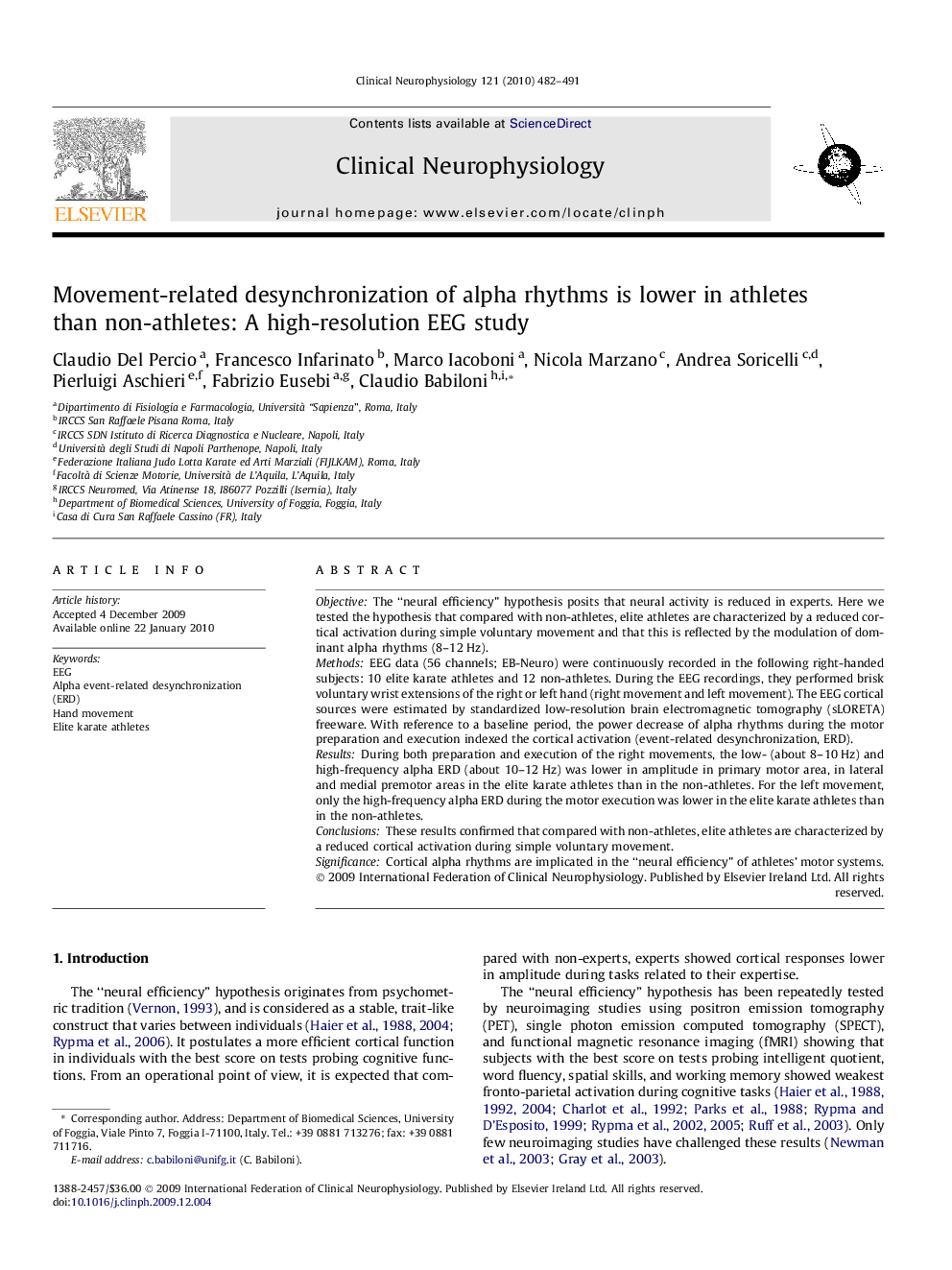| Article ID | Journal | Published Year | Pages | File Type |
|---|---|---|---|---|
| 6009188 | Clinical Neurophysiology | 2010 | 10 Pages |
ObjectiveThe “neural efficiency” hypothesis posits that neural activity is reduced in experts. Here we tested the hypothesis that compared with non-athletes, elite athletes are characterized by a reduced cortical activation during simple voluntary movement and that this is reflected by the modulation of dominant alpha rhythms (8-12Â Hz).MethodsEEG data (56 channels; EB-Neuro) were continuously recorded in the following right-handed subjects: 10 elite karate athletes and 12 non-athletes. During the EEG recordings, they performed brisk voluntary wrist extensions of the right or left hand (right movement and left movement). The EEG cortical sources were estimated by standardized low-resolution brain electromagnetic tomography (sLORETA) freeware. With reference to a baseline period, the power decrease of alpha rhythms during the motor preparation and execution indexed the cortical activation (event-related desynchronization, ERD).ResultsDuring both preparation and execution of the right movements, the low- (about 8-10Â Hz) and high-frequency alpha ERD (about 10-12Â Hz) was lower in amplitude in primary motor area, in lateral and medial premotor areas in the elite karate athletes than in the non-athletes. For the left movement, only the high-frequency alpha ERD during the motor execution was lower in the elite karate athletes than in the non-athletes.ConclusionsThese results confirmed that compared with non-athletes, elite athletes are characterized by a reduced cortical activation during simple voluntary movement.SignificanceCortical alpha rhythms are implicated in the “neural efficiency” of athletes' motor systems.
